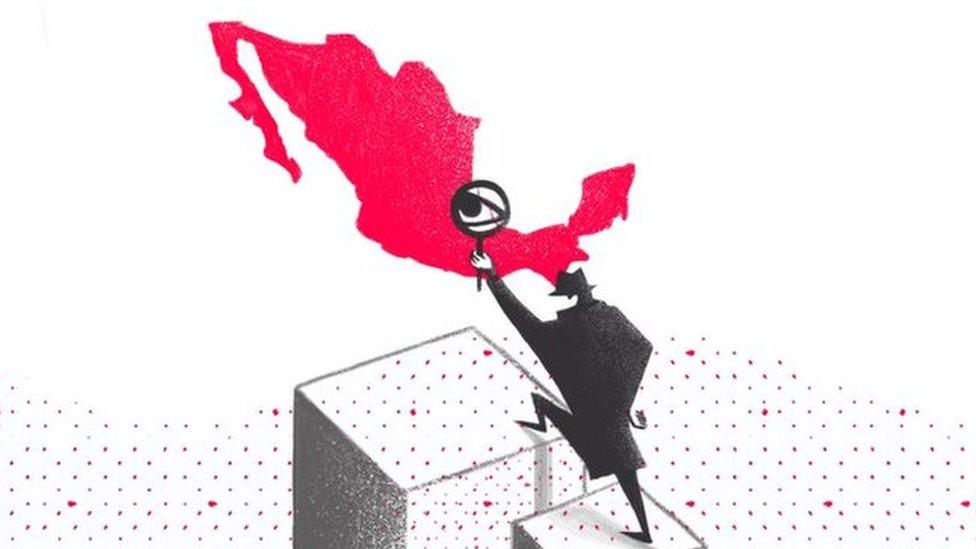Who is Mexico's Andrés Manuel López Obrador?
- Published
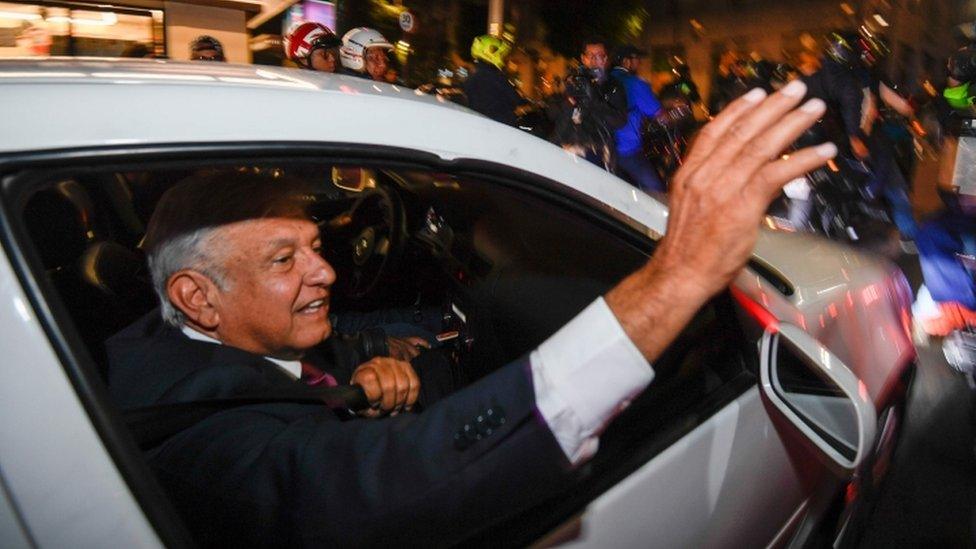
The left-wing politician and former Mexico City mayor Andrés Manuel López Obrador has promised no less than to carry out a "radical transformation" in his country and to "eradicate corruption".
Mr López Obrador, who is popularly known as "Amlo", an acronym using the full initials of his name, won the presidency at the third attempt on 1 July.
The white-haired 65-year-old political veteran, who won over Mexicans with his rousing populist campaign speeches, must now put his promises into action.
Message of renewal
Amlo ran under a three-party coalition led by the leftist National Regeneration Movement party (Morena) he founded in 2014.
Opponents of Mr López Obrador say his leftist sympathies risk turning Mexico "into Venezuela".
They warn that he shares the authoritarian approach and drive to expropriate of the late Venezuelan President Hugo Chávez and that he will wreck Mexico's economy in the same way that of Venezuela has been.
Five things you need to know about Andres Manuel Lopez Obrador or "Amlo"
Mr López Obrador rejects comparisons with Venezuela's leaders, saying he will not carry out expropriations or seek re-election after this term in office.
He has however promised to review contracts which were awarded by Mexico's state oil company Pemex to private companies during the administration of outgoing President Enrique Pena Nieto, saying he will check them for corruption.
His message of renewal resonated with an electorate weary of corruption, soaring crime and economic hardship. Mr López Obrador promised to deliver economic growth, jobs and social development programmes.
"We will carry out a peaceful transformation, ordered, but profound and even radical, because the word radical comes from root, and what we will do... is, in essence, to root out the corrupt regime," he said at one campaign rally.
Opposing the 'power mafia'
Casting himself as an anti-establishment candidate, Mr López Obrador has directed his biggest criticism at what he says is a "power mafia" that has ruled Mexico for decades.
His plans include increasing scholarships for young Mexicans and expanding social welfare programmes for the elderly.
Following a bruising war of words with prominent business leaders, whom he accused of acting "like they owned Mexico", Mr López Obrador has extended an olive branch, offering "good relations" with the private sector.
Bringing peace in the drugs war
The left-wing candidate has promised to "achieve peace and end the war" in Mexico at a time when the murder rate has broken all records as drug cartels feud and fragment.
While he has said that he will not continue the military-led "war on drugs" strategy waged by his predecessors in office President Enrique Peña Nieto and Felipe Calderón, Mr López Obrador has been vague about his own planned security policy.
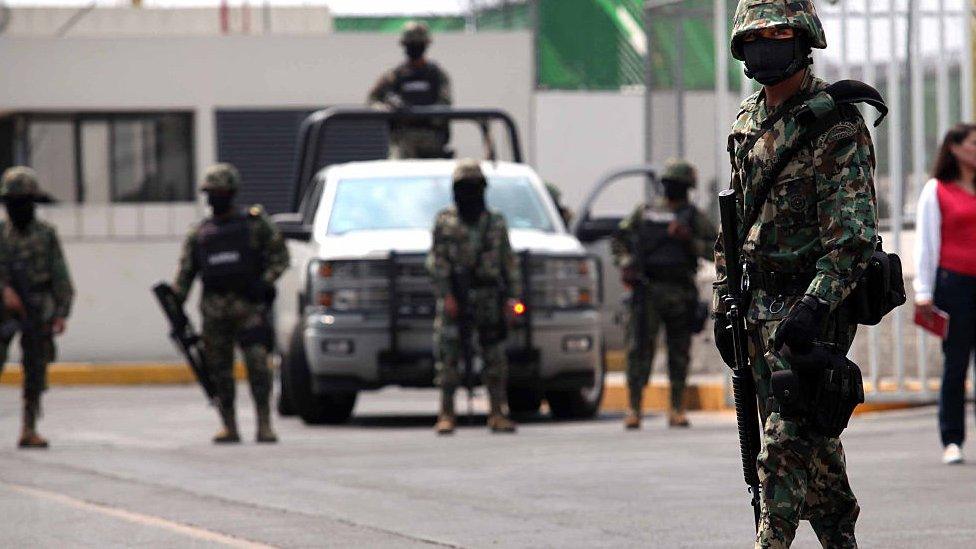
Violence in Mexico spiked in 2017, surpassing historic levels reported in 2011
He drew criticism, and even ridicule, when he floated the idea of granting an "amnesty" to criminals.
Standing up to Trump
Faced with hostility towards Mexico by US President Donald Trump, Mr López Obrador has maintained an attitude of proud defiance.
He said that he would not allow Mexico to be Mr Trump's "whipping boy", but added that he wants "friendship" and "mutual respect" with the US and that he would seek to avoid any trade war.
However, he has blasted Mr Trump's anti-immigrant policies as "irresponsible" and "racist".
What do Mexicans think of Donald Trump?
Life in politics
Born to a family of shopkeepers on 13 November 1953 in the rural community of Tepetitán, in Mexico's southern Tabasco state, Mr López Obrador began his political career working for the governing Institutional Revolutionary Party (PRI).
In 1986, disillusioned by the PRI, he joined a breakaway movement, the Corriente Demorática (Democratic Current), which later became the leftist Party of the Democratic Revolution (PRD).
In 2000, he was elected mayor of Mexico City for the PRD.
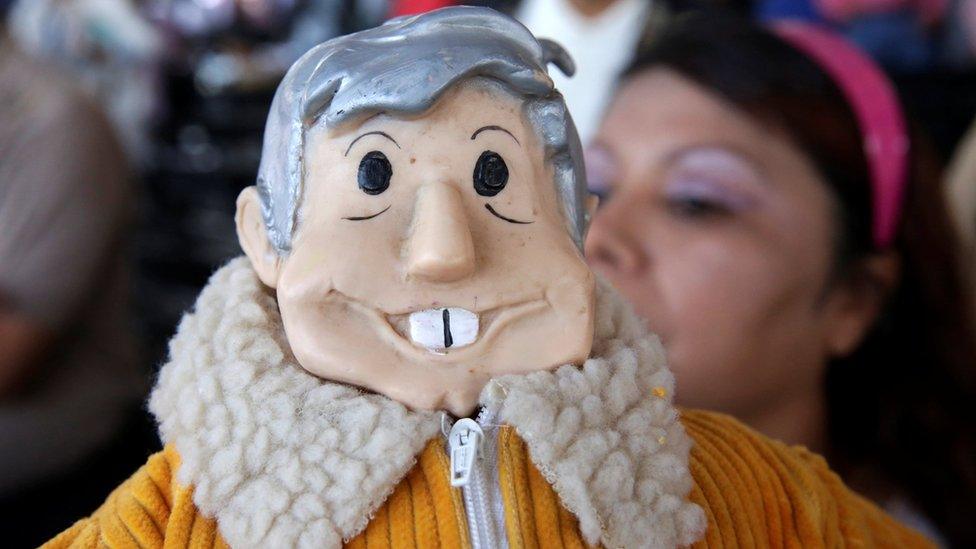
A supporter at a rally holds a figure representing Mr López Obrador
Mr López Obrador's administration in the capital gained recognition for measures such as the launching of welfare programmes for the elderly and for joining efforts with telecom tycoon Carlos Slim to restore Mexico City's downtown.
In 2006, he made his first run for the presidency, narrowly losing to Mr Calderón in an election considered Mexico's most controversial in modern history because of the razor-thin difference in votes - only 0.56% - between the two.
Mr López Obrador led mass protests against the results and denounced an "electoral fraud". His supporters erected encampments and blocked traffic in Mexico City for months.
He tried again in the 2012 election, and was defeated by PRI candidate Mr Peña Nieto.
This time, he won.
- Published8 June 2018
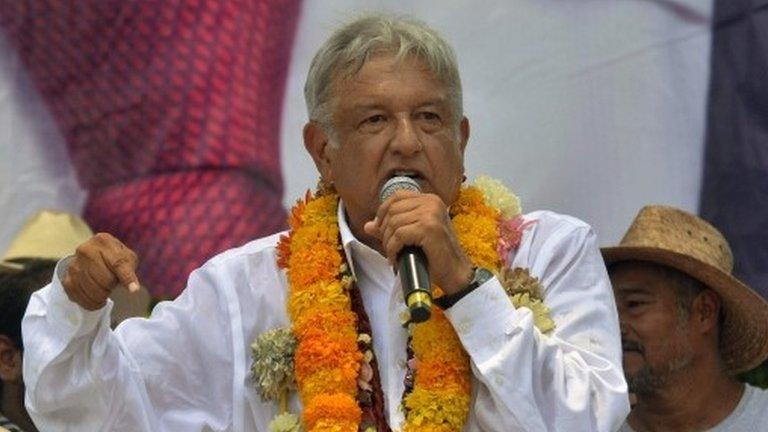
- Published28 June 2018
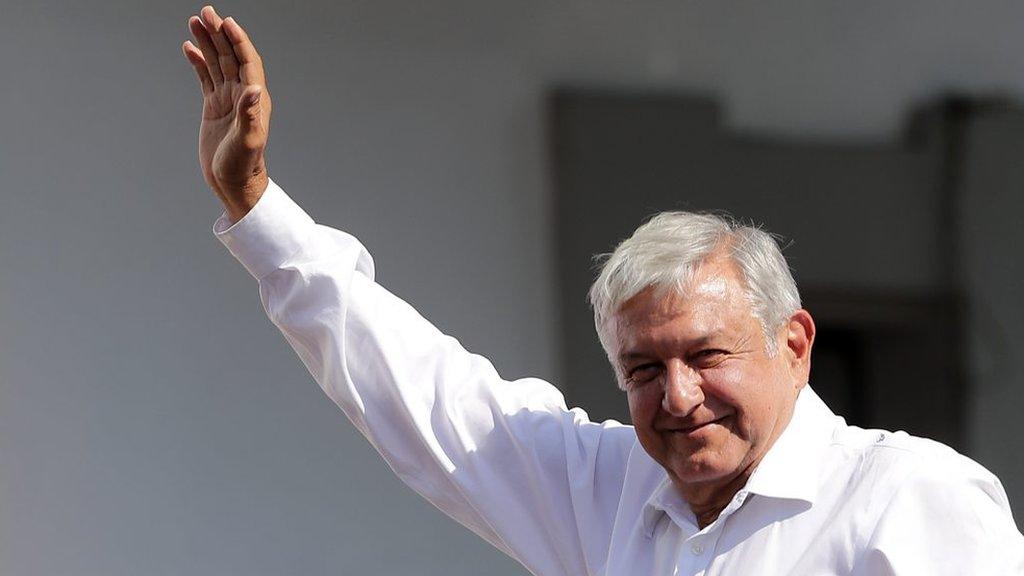
- Published30 May 2018
